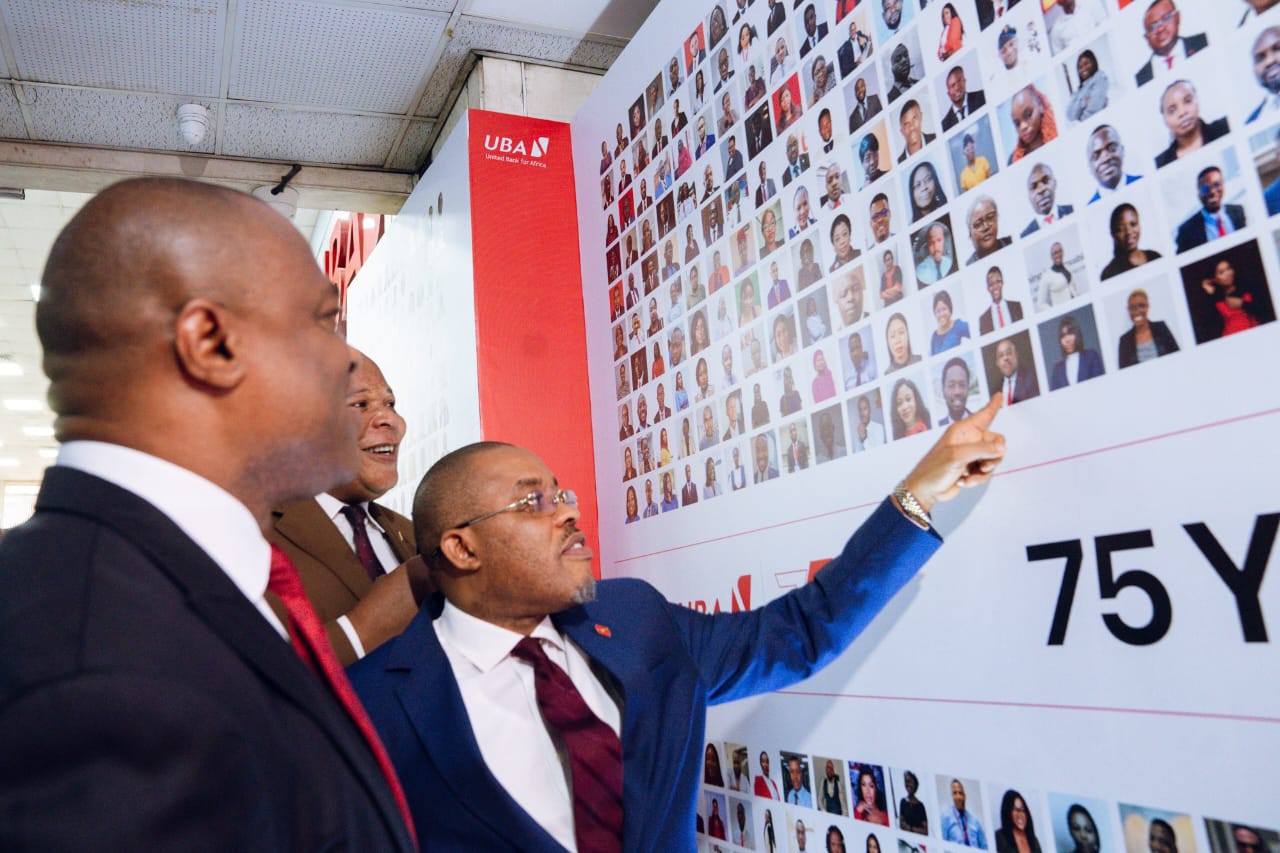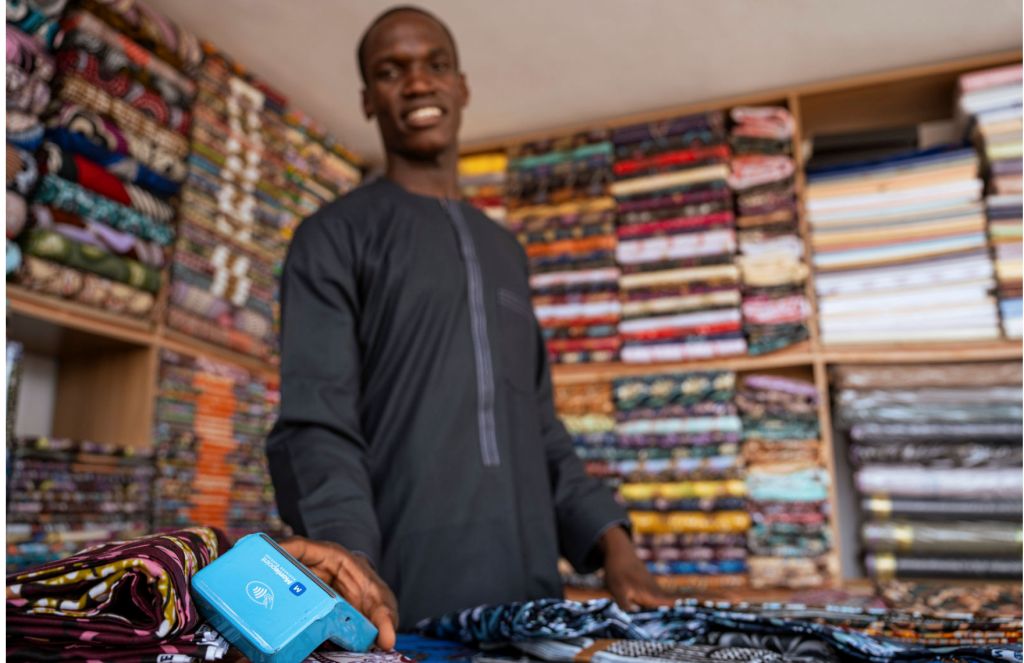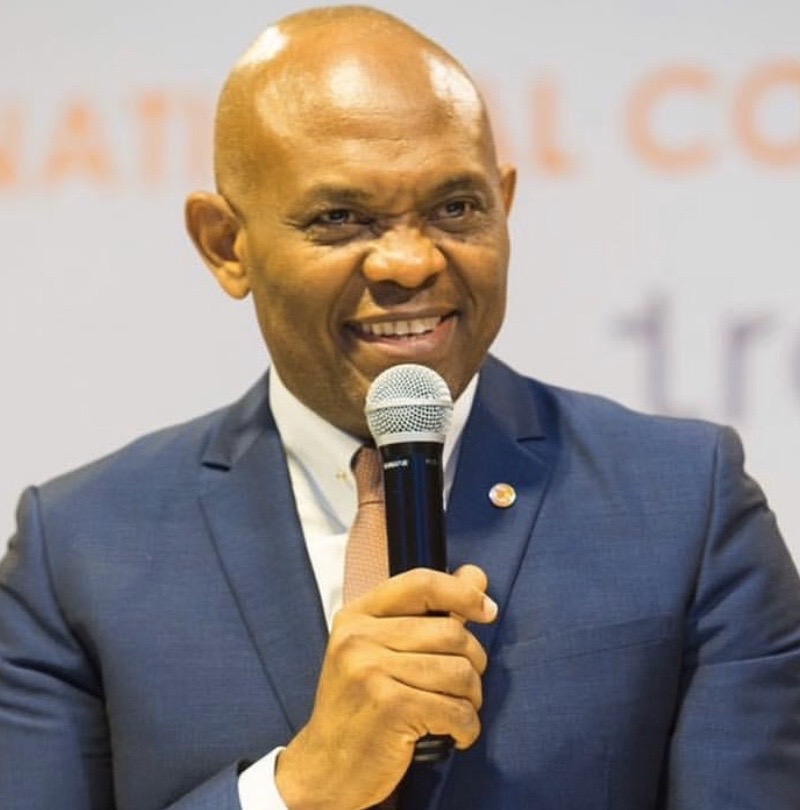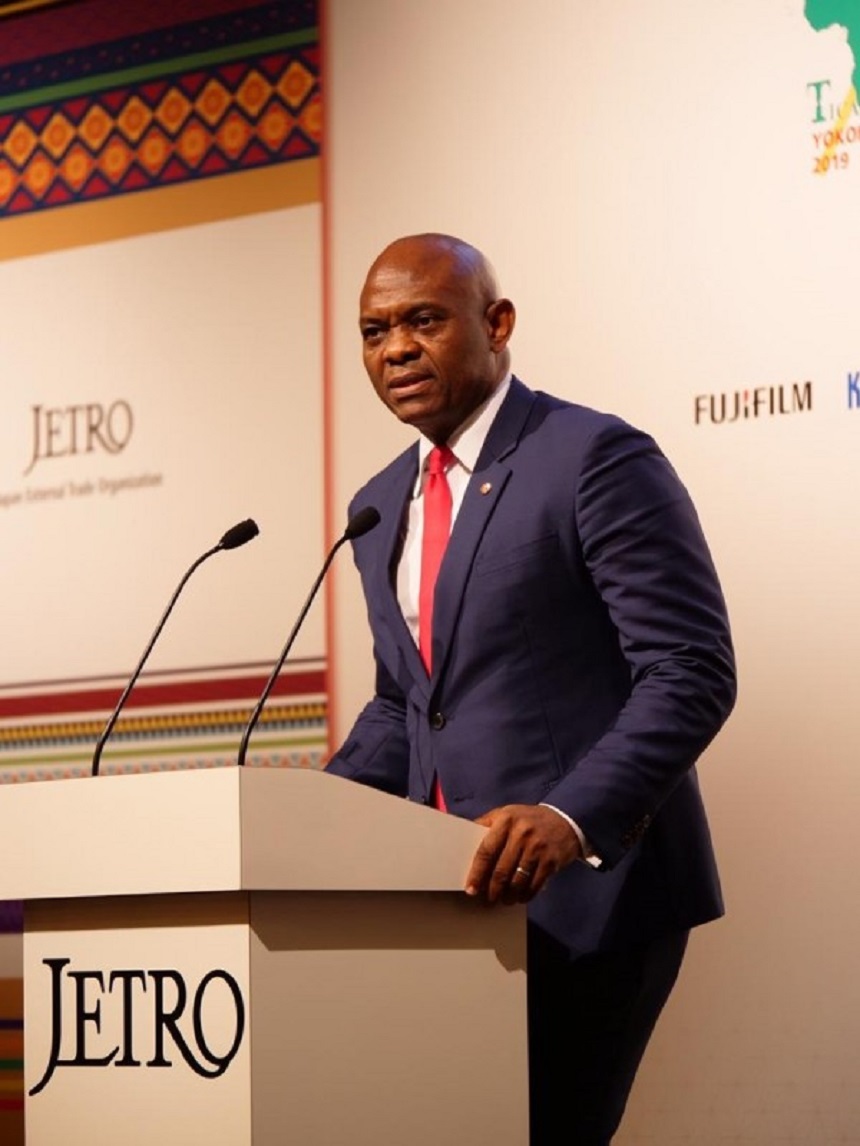Banking
As UBA Plc Prepares For Recapitalization

By Funsho Arogundade
For the United Bank for Africa (UBA Plc), its rich history is matchless. With its origins dating back to 1949, the bank, which prides itself as Africa’s global bank, has carved its niche as a leading financial institution in sub-Saharan Africa, growing into one of the continent’s most influential banks.
UBA’s evolution from a local Nigerian bank to a pan-African and global financial institution is remarkable. Its ability to balance its African identity with a global outlook has made it one of the most trusted and dynamic banks on the continent.
Of course, much has been said about the bank’s qualitative and quantitative values. For millions of UBA customers and its present —and prospective— shareholders, there is a guarantee qualitatively non-numeric value of the bank’s solid business model, firm brand value, competitive edge, and most importantly, a list of bright minds on its roster led by quick-witted entrepreneur, Tony Onyeamechi Elumelu —as Chairman— running its operations. Even, on its numeric value, the banking behemoth has consistently maintained a strong balance sheet.
Over the years, UBA has demonstrated sound financial management, risk mitigation, and strong capital adequacy ratios, all of which have contributed to its robust financial standing.
Many would recall the heydays of the banking sector consolidation boom between 2005 and 2007. Perhaps no other bank took, more seriously, to heart, the call by the then Central Bank of Nigeria (CBN) Governor, Charles Chukwuma Soludo, that Nigeria banks should aspire to be global players like UBA did. While many other banks also hearkened to that call, given the overwhelming advantages such economies of scale would bring to a bank, the then Tony Elumelu-led management of UBA quickly set about rebranding the bank as ‘Africa’s Global Bank’. Within a few years, the bank got full commercial licenses in many countries with these offshore branches adding value to the bank’s operations and diversifying its revenue base.
Over the decades, the bank has scaled its expansion offshore and forged ahead to increase its presence on the continent and today it stands out with its unique blend of a strong African identity and a global vision that spans across 20 African countries, as well as key international financial hubs, including New York, London, Paris, and Dubai.
“Our success is a testament to the effectiveness of UBA’s global strategy and our role as the financial intermediary for Africa and the world,” Elumelu said.
UBA has indeed created opportunities for millions of Africans to open accounts, secure loans, and engage in financial activities that were previously out of reach. This wide-reaching approach to financial inclusion aligns with UBA’s broader goal of contributing to economic empowerment across the continent. By making financial services accessible, UBA is supporting small and medium-sized enterprises (SMEs), agriculture, and other sectors that are vital to African economies.
The bank’s balance sheet, which has grown steadily, is now heavily driven by its African operations. In fact, over 50% of its balance sheet is derived from its African subsidiaries —a remarkable milestone that underscores UBA’s deep integration into the economies across the continent.
The Group’s results, which were released to the Nigerian Exchange Limited (NGX) on Friday 3 May 2024, saw outstanding year-on-year increases: Gross Earnings rose by 110%, from N271.1 billion to N570.2 billion; Interest Income grew by 130%, to N440.7 billion. Operating Income increased by 115%, from N175.7 billion in 2023 to N378.59 billion.
Further consolidating the record performance delivered in the Group’s 2023 Full Year Audited Financials, UBA again saw Profit Before Tax rising significantly by 155% from N61.7 billion in Q1 2023 to N156.34 billion in Q1 2024; while Profit After Tax jumped from N53.5 billion to N142.5 billion, representing an impressive rise of 165% year-on-year.
“The vision of going into these countries is paying off and will continue to pay off. We will continue to invest in Africa and deepen our market share. Our market share in those countries is improving and if you go to some of these countries, UBA is one of the top three banks and they appreciate the contribution of the bank to their economy,” said Oliver Alawuba, the Group Managing Director of UBA Plc.
With nearly two decades since the last recapitalisation effort, the banking sector is once again poised to play a crucial role in accelerating economic growth and achieving the Nigerian government’s 2030 vision of a trillion-dollar economy.
On 28 March 2024, the CBN announced a directive for banks in Nigeria to recapitalize with the pivotal objectives of strengthening the banking industry and mitigating systemic risks. The CBN’s new guidelines on the minimum capital requirement for banks range from N50 billion to N500 billion —depending on the type of licence held by the bank— and the fresh funds must not necessarily be related to the existing shareholder funds. In total, approximately N4.14 trillion is expected to be raised between now and March 31, 2026.
Experts have said true financial security and wealth creation comes from owning assets whether stocks, bonds, or a piece of real estate. In all, as they encourage people to own assets of different classes, they are always making a case for people to own shares of banks, especially UBA Plc whose share stood at N24.25 per unit at the close of Wednesday’s trading.
These analysts relayed their trust and overall satisfaction with the bank, as well as recommended it to other investors. They rated the bank on five criteria: trustworthiness, terms and conditions (such as fees and rates), customer service (wait times and helpfulness of employees), digital services (ease of using the website and app), and quality of financial advice.
However, a significantly challenged macroeconomic environment, characterised by high inflation following the significant devaluation of the naira, presents a more difficult hurdle for banks this time around. But despite Nigeria’s macro headwinds which trigger the proposed upward review of the banks’ capital base, Alawuba exercises no fear with UBA’s huge customer deposits of N18 trillion, shareholders’ fund of N2 trillion and customer base of about 45 million across Africa. Indeed, UBA operates with the highest licence available —which is an international licence.
On the value proposition of UBA to investors ahead of the fresh banking sector recapitalisation, the UBA GMD speaks more with a strong conviction; ”UBA is that bank that investors can look onto. In 2023, our capital appreciation was one of the highest on the exchange. For the past two years, our dividend yield has been above 12% and when you look at the bank presence in 24 countries, it shows a diversification of income stream but also highlights the unique investment proposition we offer,” Alawuba said.
While projecting that the shares of UBA could hit N100 per unit on the stock exchange, the bank boss added, “When you invest in UBA shares, you are essentially gaining exposure to the economic potential of 24 different markets. Therefore, it is crucial for us to communicate to Nigerian investors that UBA’s current share price is undervalued, presenting a substantial opportunity for those looking to invest in a bank with a truly global footprint.”
With a focus on sustainability, innovation, and inclusivity, UBA is not only a financial institution but a key enabler of Africa’s long-term growth and global integration. These have positioned the bank well for the future.
With generous bonuses and promotions and a variety of products, UBA has become a popular choice for consumers across the continent.
As the bank celebrates 75 years, it reassures customers of its commitment to strong corporate governance built on the foundation of trust, adaptability, strong relationships, innovation, and service excellence.
Banking
Moniepoint Processes N412trn Transactions, Disburses N1trn Loans in 2025

By Adedapo Adesanya
Nigerian financial services firm, Moniepoint Incorporated, processed N412 trillion in transaction value and disbursed more than N1 trillion in loans to small businesses in 2025, as the company continues to grow Nigeria’s expanding retail payments and credit structure.
The company said it handled more than 14 billion transactions during the year and now powers about 80 per cent of in-person payments nationwide, underscoring the increasing concentration of payment flows through a small number of fintech platforms.
Moniepoint also averaged 1.67 billion monthly transactions in 2025 and grew its card user base by 200 per cent, with its cards being used 1.7 million times daily.
The organisation also processed over 500,000 data renewals daily, while customers spent N90 million ($64,264) daily at gyms.

Moniepoint’s scale reflects a broader shift in Nigeria’s payments landscape, where point-of-sale terminals and digital transfers have become central to everyday commerce, from neighbourhood shops to open-air markets.
Founded in 2015, Moniepoint has evolved from a backend technology provider into Nigeria’s largest merchant acquirer, offering payments, banking, credit, foreign exchange and business management tools to more than 6 million active businesses.
The company said it expanded lending to small businesses that are often excluded from bank credit, disbursing more than N1 trillion in loans through its microfinance banking unit in the year under review.
“Our focus has been on building infrastructure that works for how businesses actually operate,” said Mr Tosin Eniolorunda, Moniepoint’s founder and chief executive, pointing to the prevalence of informal trade in Africa’s largest economy.
In 2025, Moniepoint became a unicorn after it raised more than $200 million in a Series C funding round backed by investors including Development Partners International, Google’s Africa Investment Fund, Visa, the International Finance Corporation and Verod Capital, providing capital to scale its payments and financial services operations.
Beyond acquiring, the company said its switching and processing subsidiary, TeamApt Ltd, secured licences from Mastercard and Visa to operate as a processor and acquirer, enabling it to handle international card payments and provide switching services to other businesses across Africa. Its web payments gateway, Monnify, processed N25 trillion in transactions during the year.
Recently, the Central Bank of Nigeria (CBN) upgraded Moniepoint’s microfinance bank to a national microfinance bank licence, allowing it to expand its footprint across the country and broaden the range of products that it can offer.

Banking
Standard Bank Helps Aradel Energy With $250m Financing Facility

By Aduragbemi Omiyale
A $250 million financing facility to support the acquisition of about 40 per cent equity in ND Western Limited from Petrolin Trading Limited has been secured by Aradel Energy Limited, a wholly owned subsidiary of Aradel Holdings Plc.
The funding package was facility for the energy firm by Standard Bank, which comprises Stanbic IBTC Capital Limited, Stanbic IBTC Bank Limited, and the Standard Bank of South Africa Limited.
The facility, Business Post gathered, was structured to support Aradel Energy’s strategic growth agenda, the refinancing of existing loan facilities, and the funding of increased production from the company’s existing asset base.
Aradel Energy is the operator of the Ogbele and Omerelu onshore marginal fields, as well as OPL 227 in shallow water terrain.
Prior to the transaction, Aradel Energy held a 41.67 per cent equity interest in ND Western, and following the completion of the acquisition, its shareholding in ND Western has increased to 81.67 per cent.
ND Western holds a 45 per cent participating interest in OML 34 and a 50 per cent equity interest in Renaissance Africa Energy Company Limited, the operator of the Renaissance Joint Venture and a 30 per cent owner of one of Nigeria’s largest and most strategic energy portfolios.
As a result of the transaction, Aradel Energy’s indirect equity interest in Renaissance has increased to 53.3 per cent, significantly strengthening the company’s upstream position and long-term value creation potential.
Standard Bank acted as Global Coordinator and Bookrunner, leading the structuring, execution, and funding of the facility, affirming its deep sectoral expertise and reinforces its position as a leading financier in Africa’s energy industry.
This transaction reinforces Standard Bank Group’s commitment to providing strategic capital to clients as they execute on their transformative growth objectives.
By delivering tailored financing solutions that enable sustainable value creation, the Bank remains a trusted partner to leading corporations across Africa’s evolving energy landscape.
“As Aradel Energy consolidates its position as one of Nigeria’s leading oil and gas companies, Stanbic IBTC Bank is proud to serve as a trusted long-term partner supporting the company’s growth ambitions,” the Executive Director for Corporate and Transaction Banking at Stanbic IBTC Bank, Mr Eric Fajemisin, stated.
Also commenting, the Regional Head of Energy and Infrastructure Finance for West Africa at Standard Bank, Mr Cody Aduloju, said, “The transaction illustrates Standard Bank’s ability to deliver large-scale, tailored funding solutions and further demonstrates our support to the fast-growing indigenous companies of Nigeria’s oil and gas sector.”
The chief executive of Aradel Holdings, Mr Adegbite Falade, said, “The acquisition bolsters Aradel Energy’s competitive positioning across Nigeria’s oil and gas value chain and supports our commitment to strategic growth, asset optimisation, and enduring value creation. We are pleased to have partnered with Standard Bank, who supported us and delivered a fully funded solution under very tight timelines.”
Banking
CBN Upgrades Operating Licences of OPay, Moniepoint, Others to National

By Modupe Gbadeyanka
The operating licences of major financial technology (fintech) platforms like OPay and Moniepoint, have been upgraded to national by the Central Bank of Nigeria (CBN).
Also upgraded by the banking sector regulator were PalmPay, Kuda Bank, and Paga after compliance with some regulatory requirements, allowing them to operate across Nigeria.
Speaking at annual conference of the Committee of Heads of Banks’ Operations in Lagos recently, the Director of the Other Financial Institutions Supervision Department of the CBN, Mr Yemi Solaja, said the licences were upwardly reviewed after the financial institutions met some requirements, including the Know-Your-Customer (KYC) policy.
“Institutions like Moniepoint MFB, Opay, Kuda Bank, and others have now been upgraded. In practice, their operations are already nationwide,” he said at the event.
The upgrade also reinforces financial inclusion, as fintechs and agent networks continue to play a pivotal role in providing access to banking and payments services, especially in rural and underserved areas.
The central bank executive stressed the importance of physical presence for customer support.
According to him, “Most of their customers operate in the informal sector. They need a clear point of contact if any issues arise,” to strengthen internal controls, and enhance customer service, particularly around KYC and anti-money laundering (AML) processes.
-

 Feature/OPED6 years ago
Feature/OPED6 years agoDavos was Different this year
-
Travel/Tourism9 years ago
Lagos Seals Western Lodge Hotel In Ikorodu
-

 Showbiz3 years ago
Showbiz3 years agoEstranged Lover Releases Videos of Empress Njamah Bathing
-

 Banking8 years ago
Banking8 years agoSort Codes of GTBank Branches in Nigeria
-

 Economy3 years ago
Economy3 years agoSubsidy Removal: CNG at N130 Per Litre Cheaper Than Petrol—IPMAN
-

 Banking3 years ago
Banking3 years agoSort Codes of UBA Branches in Nigeria
-

 Banking3 years ago
Banking3 years agoFirst Bank Announces Planned Downtime
-

 Sports3 years ago
Sports3 years agoHighest Paid Nigerian Footballer – How Much Do Nigerian Footballers Earn






















